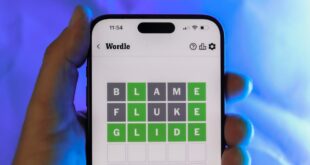What is the best internet provider in North Dakota?
Midco is the best internet service provider for most households in North Dakota, thanks to its wide availability, fast speeds and a reputation for good customer service. However, Midco service isn’t available everywhere in North Dakota. T-Mobile Home Internet or any of the state’s many local fiber ISPs are also solid picks, depending on what’s available in your area.
We’ve also found the top options if you’re hunting for the lowest prices or fastest speeds. The cheapest widely available internet plan in North Dakota is Midco’s offering of 250 megabits per second starting at $39 a month (although you may be able to find an even cheaper introductory deal). Midco offers some of the fastest internet around with its 5,000Mbps fiber plan, but availability is limited. Many rural homes and small towns can access gig fiber internet through a local provider, so check your address to see who services your location.
Best internet in North Dakota
North Dakota internet providers compared
| Provider | Internet technology | Monthly price range | Speed range | Monthly equipment costs | Data cap | Contract | CNET review score |
|---|---|---|---|---|---|---|---|
| Bluepeak | Fiber | $55-$100 | 1,000-5,000Mbps | None | None | None | N/A |
| CenturyLink DSL Read full review |
DSL | $55 | 3-100Mbps | $15 (optional) | None | None | 6.7 |
| Dakota Central | Fiber | $50-$100 | 250-1,000Mbps | $10 (optional) | None | None | N/A |
| DRN | Fiber | $75-$150 | 250-1,000Mbps | Varies | None | Optional | N/A |
| Midco | Cable/fiber/fixed wireless | $39-$249 | 35-5,000Mbps | Varies | None | None | N/A |
| Sparklight Read full review |
Cable | $29-$59 | 300-1,000Mbps | $14 (optional) | 5TB soft cap | None | 6.9 |
| SRT Communications | Fiber/DSL | $50-$90 | 25-1,000Mbps | None | None | None | N/A |
| Quantum Fiber | Fiber | $50-$75 | 500-940Mbps | None | None | None | 6.7 |
| T-Mobile Home Internet Read full review |
Fixed wireless | $50-$70 ($30-$50 with eligible mobile plans) | 72-245Mbps | None | None | None | 7.4 |
| Verizon 5G Home Internet Read full review |
Fixed wireless | $50-$70 ($35-$45 for eligible Verizon Wireless customers) | 50-300Mbps | None | None | None | 7.2 |
| Starlink Read full review |
Satellite | $90-$120 | 25-220Mbps | None (One-time $349 fee) | None | None | 6.5 |
Show more (6 items)
Source: CNET analysis of provider data.
Rural internet options in North Dakota
- CenturyLink: CenturyLink’s legacy DSL network stretches outward to cover some rural areas around Dickinson, Bismarck, Jamestown, Valley City, Fargo and Grand Forks. It may be one of the few wired options for some locations, but it has some downsides. Speeds typically max out at 100Mbps but may be drastically slower depending on location. The monthly fee is $55, with an optional $15-per-month equipment lease. CenturyLink’s vastly faster sibling service, Quantum Fiber, is available in a few scattered areas around the state, but it’s hard to find.
- Dakota Central: There are many local fiber ISPs in North Dakota, and not all are included in this guide. Dakota Central brings gig-level fiber to a chunk of land around Carrington and Jamestown. Typical plans range from 250Mbps for $50 per month to 1,000Mbps for $100 per month. Speeds up to 10,000Mbps may be available. There’s a one-time connection charge of $25. You can add a router for $10 monthly or bring your own. There are no data caps or contracts.
- DRN: DRN’s fiber network stretches across part of the southeast and includes the communities of Ashley, Lisbon, Oakes and Verona, among others. Prices start at $75 a month for 250Mbps and top out at $150 monthly for a gig. All speeds are symmetrical. There’s a $95 activation fee, but you can waive that if you agree to a one-year contract. A router is included. There are no data caps.
- Midco: Midco’s fixed wireless networks stretch across the far eastern side of the state. There’s one plan available starting at $39 per month for speeds of 35 to 100Mbps. Unlimited data is included. Wi-Fi equipment costs $11 a month. Fixed wireless is a fallback choice if wired options don’t reach your address (or if DSL is too slow) and you don’t want to resort to satellite internet. Here’s how fixed wireless compares to other types of internet connections.
- Polar Communications: Polar’s territory runs from the state’s northeast corner to Walcott. Plans start at $62 a month for 100Mbps fiber and go up to $112 for a gig. Add about $10 to those numbers to include Wi-Fi equipment. There are no contracts or data caps.
- Red River Communications: Red River covers the southeast corner of North Dakota with fiber plans starting at $70 a month for 250Mbps. The gig plan costs $108 per month. Speeds are symmetrical and there are no data caps.
- RTC: RTC offers fiber internet to a broad area along the state’s western side, including towns like Watford City and New Town. Plans start at $80 monthly for 100Mbps and top out at $125 monthly for a gig. Speeds are symmetrical, data is unlimited and Wi-Fi gear is included.
- Satellite Internet: Starlink, Viasat and Hughesnet compete to provide internet connections to remote areas nationwide that aren’t served by faster or more affordable options. North Dakota is fortunate to have a lot of rural fiber coverage, but it doesn’t reach everywhere. That’s where satellites can swoop in and save the day, but it can be costly, and speeds may be slow. Compare with any DSL or fixed wireless options you might have.
Internet breakdown by city in North Dakota
It isn’t easy to cover a state’s broadband options and give individual cities the attention they deserve. That’s why we also compile lists of the best internet providers in cities across the US, including those in North Dakota. We tackle details such as internet connection types, maximum speeds, cheapest providers and more. Check back later if you don’t find the city you’re looking for below. We’re working to add more locations every week.
Cheap internet options in North Dakota
In Fargo, Sparklight offers a $29-a-month introductory deal for 300Mbps service. That price is good for a year, then goes up to $55 monthly. For more widely available plans, look to Midco and its 250Mbps tier for fiber or cable. Starting prices will vary with where you live in North Dakota, but I found offers of $39 or $49 monthly. Midco sometimes runs even cheaper limited-time deals. I’ve seen the 250Mbps plan for as low as $23 a month for the first three months of service.
What are the cheapest internet plans in North Dakota?
| Plan | Starting monthly price | Monthly equipment fee | Max download speed |
|---|---|---|---|
| Sparklight Read full review |
$29 | $14 (optional) | 300Mbps |
| Midco | $39 | Varies | 250Mbps |
| Bluepeak 1 Gig Fiber | $55 | None | 1,000Mbps |
| T-Mobile Home Internet Read full review |
$50 ($30 with eligible mobile plans) | None | 245Mbps |
| Verizon 5G Home Internet Read full review |
$50 ($35 with eligible mobile plans) | None | 100Mbps |
| Quantum Fiber | $50 | None | 500Mbps |
Show more (1 item)
Source: CNET analysis of provider data.
How to find internet deals and promotions in North Dakota
The best internet deals and top promotions in North Dakota depend on what discounts are available during a given time. Most deals are short-lived, but we look frequently for the latest offers.
North Dakota internet providers, like Midco, T-Mobile Home Internet and Sparklight, may offer lower introductory pricing or streaming add-ons for a limited time. Others, including CenturyLink, tend to run the same standard pricing year-round.
For a more extensive list of promos, check out our guide on the best internet deals.
How fast is North Dakota broadband?
North Dakota fared better than South Dakota in a recent Ookla Speedtest.net ranking of median download speeds for US states. While South Dakota landed in 43rd place (average download speed of 151Mbps), North Dakota delivered a respectable showing of 27th place (average download speed of 191Mbps). Midco’s wide coverage, gig and multi-gig top speeds play a role in that. Another factor is fiber coverage in rural areas and smaller towns. You don’t have to live in one of the state’s biggest cities to get fast internet. (Ookla is owned by the same parent company as CNET, Ziff Davis.)
Fastest internet plans in North Dakota
| Plan | Starting price | Max download speeds | Max upload speeds | Connection type |
|---|---|---|---|---|
| Bluepeak 5 Gig | $100 | 5,000Mbps | 5,000Mbps | Fiber |
| Midco Fiber Internet 5 Gig | $249 | 5,000Mbps | 5,000Mbps | Fiber |
| Bluepeak 2 Gig | $70 | 2,000Mbps | 2,000Mbps | Fiber |
| Midco Fiber Internet 2 Gig | $129 | 2,000Mbps | 2,000Mbps | Fiber |
| Bluepeak 1 Gig | $50 | 1,000Mbps | 1,000Mbps | Fiber |
| Dakota Central | $100 | 1,000Mbps | 1,000Mbps | Fiber |
| DRN | $150 | 1,000Mbps | 1,000Mbps | Fiber |
| SRT Communications | $90 | 1,000Mbps | 1,000Mbps | Fiber |
| Midco Fiber Internet Gig | $49 | 1,000Mbps | 1,000Mbps | Fiber |
| Midco Gig Internet | $49 | 1,000Mbps | 50Mbps | Cable |
| Quantum Fiber | $75 | 940Mbps | 940Mbps | Fiber |
| Sparklight Read full review |
$59 | 940Mbps | 50Mbps | Cable |
Show more (8 items)
Source: CNET analysis of provider data.
What’s a good internet speed?
Most internet connection plans can now handle basic productivity and communication tasks. If you’re looking for an internet plan that can accommodate videoconferencing, streaming video or gaming, you’ll have a better experience with a more robust connection. Here’s an overview of the recommended minimum download speeds for various applications, according to the FCC. Note that these are only guidelines and that internet speed, service and performance vary by connection type, provider and address.
For more information, refer to our guide on how much internet speed you really need.
- 0 to 5Mbps allows you to tackle the basics: browsing the internet, sending and receiving email and streaming low-quality video.
- 5 to 40Mbps gives you higher-quality video streaming and videoconferencing.
- 40 to 100Mbps should give one person sufficient bandwidth to satisfy the demands of modern telecommuting, video streaming and online gaming.
- 100 to 500Mbps allows one to two people to simultaneously engage in high-bandwidth activities like videoconferencing, streaming and online gaming.
- 500 to 1,000Mbps allows three or more people to engage in high-bandwidth activities at the same time.
How CNET chose the best internet providers in North Dakota
Internet service providers are numerous and regional. Unlike the latest smartphone, laptop, router or kitchen tool, it’s impractical to personally test every internet service provider in a given city. What’s our approach? For starters, we tap into a proprietary database of pricing, availability and speed information that draws from our own historical ISP data, partner data and mapping information from the Federal Communications Commission at FCC.gov.
It doesn’t end there; we go to the FCC’s website to check our data and ensure we consider every ISP that provides service in an area. We also input local addresses on provider websites to find specific options for residents. We look at sources, including the American Customer Satisfaction Index and J.D. Power, to evaluate how happy customers are with an ISP’s service. ISP plans and prices are subject to frequent changes; all information provided is accurate as of publication.
Once we have this localized information, we ask three main questions:
- Does the provider offer access to reasonably fast internet speeds?
- Do customers get decent value for what they’re paying?
- Are customers happy with their service?
While the answers to those questions are often layered and complex, the providers that come closest to “yes” on all three are the ones we recommend. When selecting the cheapest internet service, we look for the plans with the lowest monthly fee, though we also factor in things like price increases, equipment fees and contracts. Choosing the fastest internet service is relatively straightforward. We look at advertised upload and download speeds and consider real-world speed data from sources like Ookla and FCC reports.
To explore our process in more depth, visit our how we test ISPs page.
What’s the final word on internet providers in North Dakota?
Many households in North Dakota have Midco cable, fiber or fixed wireless internet as an option. The service is solid, and the speeds range from reasonable for cable or fixed wireless to crazy-fast regarding fiber. Other providers like Quantum Fiber and Bluepeak have a small presence in North Dakota, but you’re most likely to encounter Midco as a top option.
The story of broadband runs deep and wide across North Dakota. The state’s rural areas are well served by fiber internet. A patchwork of local ISPs covers small towns and remote homes alike. Here’s a partial list of these providers: BEK Communications, Dakota Central, DRN, SRT Communications, Polar Communications, Northwest Communications, MLGC and Consolidated Telcom. You’ll find symmetrical speeds of at least a gig (and sometimes more). That’s plenty fast enough to turn your rural hideaway into an internet fast lane.
Internet providers in North Dakota FAQs
Who is the cheapest internet provider in North Dakota?
Of widely available internet plans, look to Midco’s 250Mbps tier as an affordable option. Introductory pricing for either fiber or cable usually starts at $39 a month, but you may spot bigger discounts occasionally. Verizon and T-Mobile offer bundle discounts when you combine 5G home internet with an eligible phone plan.
Which internet provider in North Dakota offers the fastest plan?
Midco’s 5,000Mbps fiber plan is one of the fastest in North Dakota but has limited availability. Check on Bluepeak’s 5,000Mbps fiber plan if you’re in Grand Forks, as well. Many of the local ISPs that service the state’s rural areas offer gig fiber speeds.
Is fiber internet available in North Dakota?
Among bigger-name ISPs, Quantum Fiber and Midco have a limited fiber footprint in North Dakota. There are gems in rural areas thanks to the many local fiber ISPs that service small towns and remote locations throughout the state. Dakota Central, DRN and SRT Communications are examples.
What internet provider has the best coverage in North Dakota?
Midco’s cable, fiber and fixed wireless networks cover over 63% of North Dakota households, according to the FCC. The fiber network is the least widespread of the three connection types, but it offers the fastest speeds at up to 5,000Mbps.
 synnbiob
synnbiob


